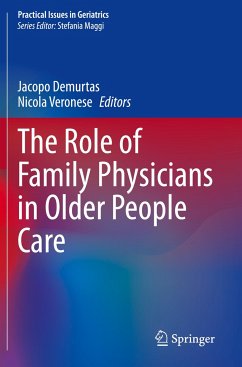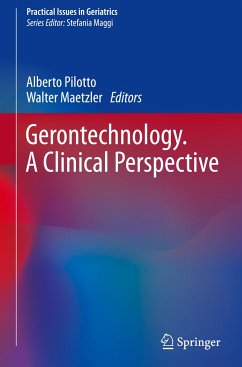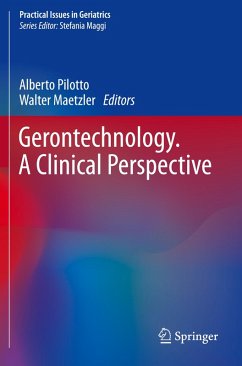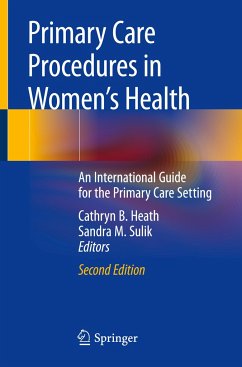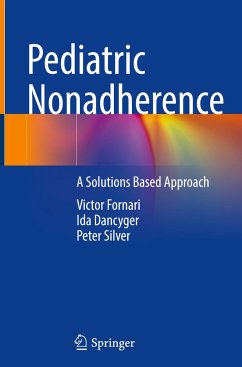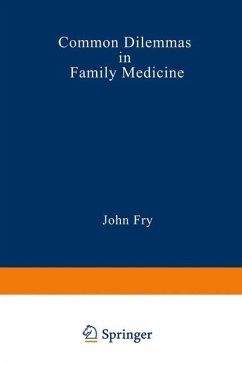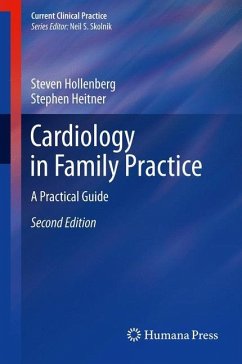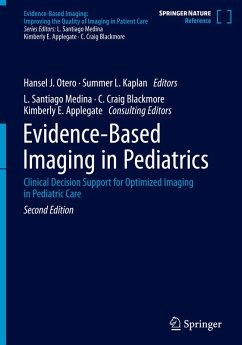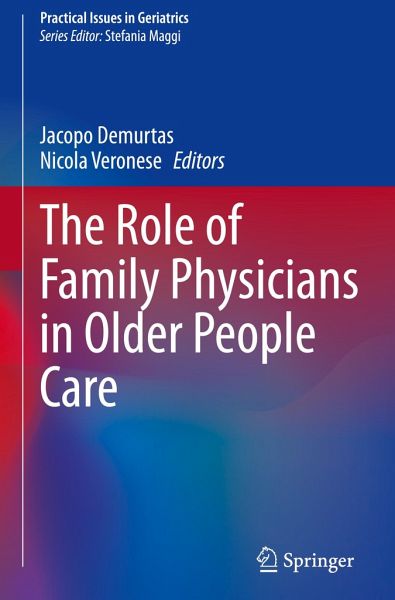
The Role of Family Physicians in Older People Care

PAYBACK Punkte
64 °P sammeln!
This book provides family doctors with a wealth of evidence-based indications and tips regarding geriatric medicine and approaches for the management of older patients, to be applied in daily practice.After discussing old and new features of healthy ageing and the approaches required in Family Medicine Consultation, the text introduces key elements of geriatric medicine such as frailty, sarcopenia, and the comprehensive geriatric assessment (CGA), before describing a range of characteristics unique to older patients in different contexts, with a dedicated section on Palliative Care. The role o...
This book provides family doctors with a wealth of evidence-based indications and tips regarding geriatric medicine and approaches for the management of older patients, to be applied in daily practice.
After discussing old and new features of healthy ageing and the approaches required in Family Medicine Consultation, the text introduces key elements of geriatric medicine such as frailty, sarcopenia, and the comprehensive geriatric assessment (CGA), before describing a range of characteristics unique to older patients in different contexts, with a dedicated section on Palliative Care. The role of polypharmacy and the importance of quaternary prevention and deprescribing are also addressed.
Finally, the book emphasizes both the importance of a humanistic approach in caring and the approach of research and meta-research in geriatrics. Though many texts explore the role of primary care professionals in geriatric medicine, the role of family doctors in older people care has not yet been clearly addressed, despite the growing burden of ageing, which has been dubbed the "silver tsunami."
Family physicians care for individuals in the context of their family, community, and culture, respecting the autonomy of their patients. In negotiating management plans with their patients, family doctors integrate physical, psychological, social, cultural and existential factors, utilizing the knowledge and trust engendered by repeated visits. They do so by promoting health, preventing disease, providing cures, care, or palliation and promoting patient empowerment and self-management.
This will likely become all the more important, since we are witnessing a global demographic shift and family doctors will be responsible for and involved in caring for a growing population of older patients.
This book is intended for family medicine trainees and professionals, but can also be a useful tool for geriatricians, helpingthem to better understand some features of primary care and to more fruitfully interact with family doctors.
After discussing old and new features of healthy ageing and the approaches required in Family Medicine Consultation, the text introduces key elements of geriatric medicine such as frailty, sarcopenia, and the comprehensive geriatric assessment (CGA), before describing a range of characteristics unique to older patients in different contexts, with a dedicated section on Palliative Care. The role of polypharmacy and the importance of quaternary prevention and deprescribing are also addressed.
Finally, the book emphasizes both the importance of a humanistic approach in caring and the approach of research and meta-research in geriatrics. Though many texts explore the role of primary care professionals in geriatric medicine, the role of family doctors in older people care has not yet been clearly addressed, despite the growing burden of ageing, which has been dubbed the "silver tsunami."
Family physicians care for individuals in the context of their family, community, and culture, respecting the autonomy of their patients. In negotiating management plans with their patients, family doctors integrate physical, psychological, social, cultural and existential factors, utilizing the knowledge and trust engendered by repeated visits. They do so by promoting health, preventing disease, providing cures, care, or palliation and promoting patient empowerment and self-management.
This will likely become all the more important, since we are witnessing a global demographic shift and family doctors will be responsible for and involved in caring for a growing population of older patients.
This book is intended for family medicine trainees and professionals, but can also be a useful tool for geriatricians, helpingthem to better understand some features of primary care and to more fruitfully interact with family doctors.



